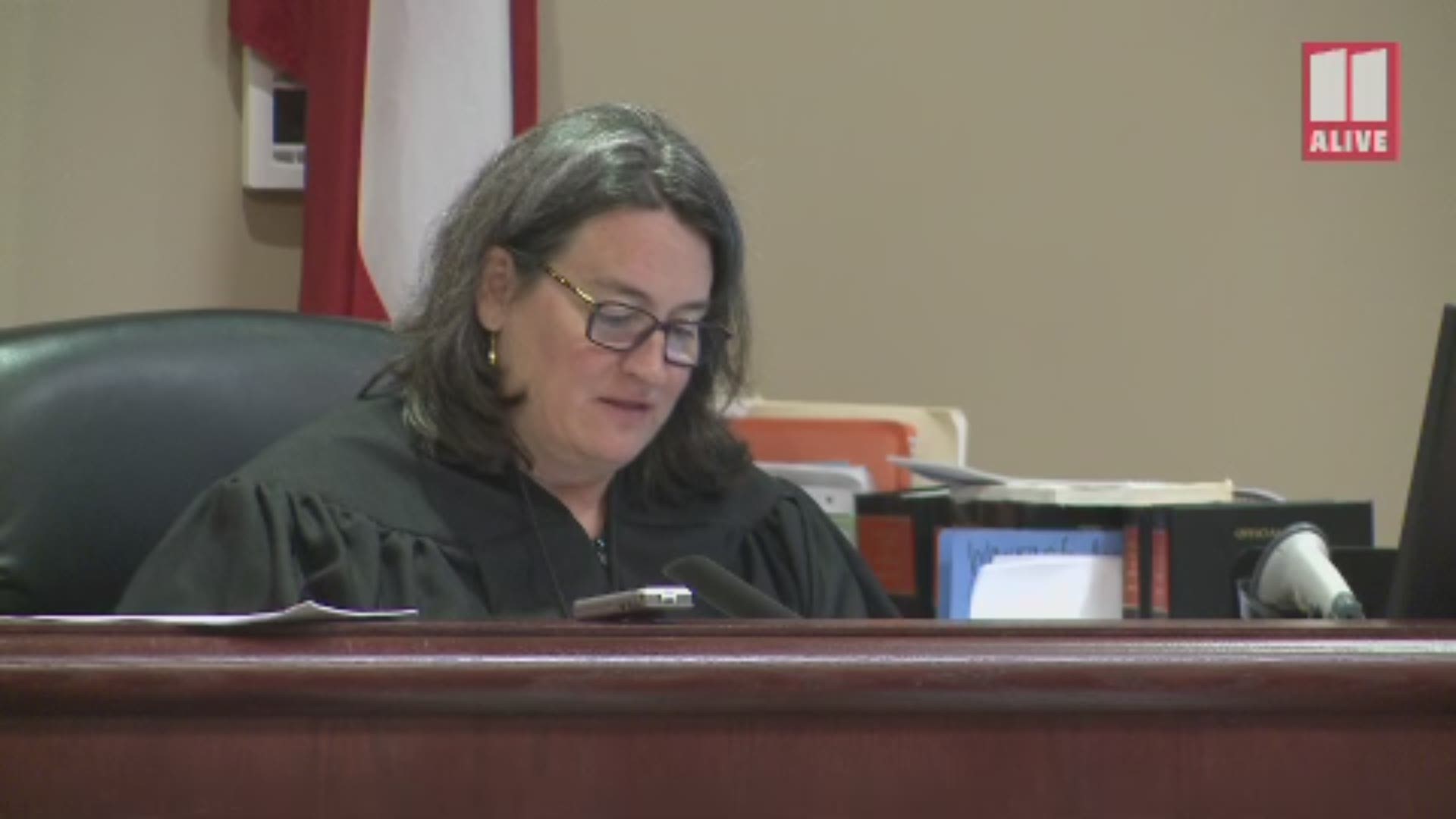DEKALB COUNTY, Ga. — A judge said she had “discomfort and reservations” about a case involving a felony murder charge against an alleged drug dealer who authorities say sold heroin to a person who later died. It's a first-of-its-kind case in DeKalb County, and was allowed to proceed, Wednesday, on its way to trial.
DeKalb County Magistrate Judge Christine Koehler ruled there was enough probable cause for the case against Antoin Thornton in the death of an unidentified individual to proceed to Superior Court, where he would stand trial.
Police have said the case marks the first time in DeKalb County that an alleged drug dealer has been charged with felony murder in connection with an overdose death.
“I think I would be inclined – and certainly if this were a trial, I would struggle to convict based on what I have heard today,” Judge Koehler said.
She said that only because the standard for probable cause is low, and because that is what her court was strictly limited to, did she advance the case along.
Police have alleged that Thornton, 28, sold heroin to a 22-year-old victim who eventually overdosed on the drug and died.
A Dunwoody Police detective testified the person who died was an apparent novice drug user who had Googled, “How not to OD on heroin.”
The prosecution stressed the clear connection between Thornton and the victim, based on text messages and GPS coordinates, and the likelihood the drugs the victim overdosed on were sold by Thornton.
They also made the case that Thornton should be tried for murder because he specifically knew the drugs he was selling could kill somebody.
“The defendant stated that he is not a heroin user, that he has never used heroin. He stated the reason he doesn’t, is due to the fact that he knows you can die from ingesting this particular substance,” Detective Caleb Gilbert of Dunwoody Police testified.
However, Darryl Cohen, an attorney not associated with the case tells 11Alive, admitting to not using drugs is not an admission to guilt.
“Didn’t say that I sold the drugs that killed him. Didn’t say that I would intentionally kill him. Just that I know enough not to take the drugs that I sell," said Cohen.
Thorton's defense disputed that it was obvious the victim died of drugs distributed by Thornton.
“The nearest link is, at some point Mr. Thornton spoke with this person about doing drugs. Nobody saw the drug deal, and that at some point in his life the victim went to the apartment complex where the defendant and other people allegedly sold drugs,” Thornton’s defense attorney Andrew Fleischman said. “Taken together I don’t believe that’s probable cause.”
Cohen agreed and explained there's many questions the prosecution will have to give direct answers to.
“You have to show a causation, certainly someone may have died as a result of an intake of drugs but you have to show where they came from," said Cohen. "How do you know the drugs the person died from are actually from the person charged with his murder?”
He further said a video or confession is the best direct evidence to obtain a murder conviction. Otherwise, the juror is left questioning if the drugs were the same, or if he ingested the drugs immediately.
Cohen said the prosecution might have a a time proving, "the defendant is the only reason the person died.”
The defense also raised the larger issue of charging a drug dealer with murder in the death of someone who bought drugs from them.
“I’m not sure the Supreme Court of Georgia has extended felony murder to every case where someone has given a drug that they may have used that made them die,” Fleischman said.
It’s not clear if there is much statewide precedent for Thornton’s case, though the Georgia Supreme Court in March heard arguments in a case where a man is charged with murder for injecting an associate with heroin who later overdosed.
That case, though, has so far mostly been argued on procedural grounds.
A number of states have laws that classify dealing drugs to someone who later dies as a result as murder, or equivalent to it. More are considering enacting legislation this year.
Twenty states have a drug-induced death law, meaning a drug dealer can be found guilty of being responsible for a death, but not murder. States like California and New Jersey have seen drugs dealers plead guilty to be liable for a death.Georgia has no such law.
Amidst the national opioid crisis, President Donald Trump has made drug dealers a preferred target, and DeKalb County District Attorney Sherry Boston said, “Our goal is not to penalize users who are struggling with addiction, but those who aim to capitalize off of their pain,” when the charges against Thornton were first announced.
However Judge Koehler made it clear she, for one, doesn’t see much merit in the idea, at least in this case.
“I don’t know that it makes it much past me to be honest with you,” she said of the charges on Wednesday.
A sentiment his attorneys echoed, telling 11Alive, “In addition to the factual hurdles which the State will have in proving that Mr. Thornton allegedly sold Mr. Whitehead the heroin that lead to his death, it is my position that there are legal hurdles which will prevent Mr. Thornton from being convicted of felony murder in this case.”
MORE HEADLINES
- Sophie's Nightmare: How a Georgia mother allowed her boyfriend to impregnate her 10-year-old
- Neighborhood water gun fight leaves Atlanta police officers soaked
- Man accused of $80K theft in online love con extradited to Georgia
- Alabama bill would require child sex offenders be chemically castrated before leaving prison


